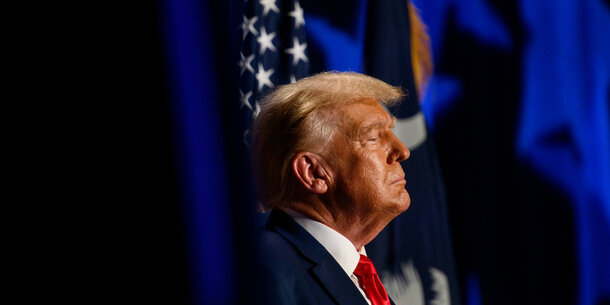A Guide to Recent Scholarship on the ‘Independent State Legislature Theory’
The latest scholarship demonstrates the flaws and the dangers of this radical theory.
Scholars are turning out in increasingly large numbers to take on the “independent state legislature theory” (ISLT), a radical and unprecedented approach to the U.S. Constitution’s Elections and Electors Clauses that would give state legislatures wide authority to gerrymander electoral maps, pass voter suppression laws, and, at the most extreme, overturn elections. This scholarship comes at a crucial moment, as some conservative legal activists press the U.S. Supreme Court to make the ISLT the new law of the land and several seated Justices signal their openness to doing so.
The ISLT hinges on a stilted reading of the word “Legislature” in the Elections and Electors Clauses, according to which state legislatures alone would have the power to regulate federal elections and appoint presidential electors without any of the normal checks and balances provided by state constitutions, state courts, or governors. Scholars, however, have rejected this approach, and not just as a matter of the Constitution’s text. The ISLT is also inconsistent with the Framers’ intent when drafting the Constitution, the early public meaning of the Constitution, and historical elections practices, among other fatal flaws.
The Brennan Center recently convened several leading scholars to discuss their work on the ISLT and what it means for any future Supreme Court showdowns on the issue. (A video of the event is here and the transcript is here.) Their articles are part of a larger, and continually growing, universe of recent scholarship. Below is a guide to recent and forthcoming literature examining the ISLT, focusing on each article’s most unique or significant arguments and findings.
“Eradicating Bush-League Arguments Root and Branch: The Article II Independent-State-Legislature Notion and Related Rubbish”
By Vikram David Amar & Akhil Reed Amar
Supreme Court Review (2022)
This article reviews the origins of the ISLT and explains how it “runs completely counter to” historical understandings of the Constitution, “to actual state legislative practice and intentions, and to settled judicial precedent from the Court itself over the past century.”
“Gaping Gaps in the History of the Independent State Legislature Doctrine: McPherson v. Blacker, Usurpation, and the Right of the People to Choose Their President”
By Mark Bohnhorst, Michael Fitzgerald & Aviam Soifer
Mitchell Hamline Law Review (forthcoming 2023)
This article explores how the case of McPherson v. Blacker has been misused and misunderstood by proponents of the ISLT.
“Constitutional Text, Founding-Era History, and the Independent-State-Legislature Theory”
By Dan T. Coenen
Georgia Law Review (forthcoming 2023)
This article argues that the ISLT is inconsistent with the text of the Constitution and the context in which that text was drafted and evaluated in 1787 and 1788.
“Undue Deference to States in the 2020 Election Litigation”
By Joshua Douglas
William & Mary Law Review (2021)
This article provides an overview of the election law cases decided by the Supreme Court and federal appellate courts in 2020, discussing the ISLT as an example of how courts deferred unduly to state legislatures during the 2020 election litigation.
“Debunking the Non-Delegation Doctrine for State Regulation of Federal Elections”
By Mark S. Krass
Virginia Law Review (2022)
This article debunks the ISLT by showing that founding era state legislatures routinely delegated the power to regulate federal elections to other state actors.
“Failed Elections and the Legislative Selection of Presidential Electors”
By Justin Levitt
NYU Law Review (2021)
This article explores some philosophical, doctrinal, and practical problems of the ISLT and argues that federal laws have long given states, rather than just state legislatures, a role in regulating federal elections.
“Textualism, Judicial Supremacy, and the Independent State Legislature Theory”
By Leah Litman & Katherine Shaw
Wisconsin Law Review (2022)
This article argues that the ISLT is inconsistent with judicial federalism, “a lawless power grab by the federal courts masquerading as deference to a romanticized vision of the state legislature.”
“The Dangerous Independent State Legislature Theory”
By Jason Marisam
Michigan State Law Review (2022)
This article argues that the justifications for the ISLT offered by its supporters are “undertheorized and based on flawed assumptions of legislative behavior and flawed understandings of constitutional and institutional design.”
“The Independent State Legislature Doctrine”
By Michael Morley
Fordham Law Review (2021)
This article explores the different “corollaries” of the ISLT, suggesting that courts need not accept or reject the entire theory but could selectively embrace parts of it. It builds off previous work laying out the argument in favor of the ISLT in Michael Morley, "The Intratextual Independent 'Legislature’ and the Elections Clause," Northwestern Law Review (2015), and his review of the historical support for the ISLT in Michael Morley, “The Independent State Legislature Doctrine, Federal Elections, and State Constitutions,” Georgia Law Review (2021), which has been disputed in current literature (see, for example, Smith’s and Amar & Amar’s articles).
“The Electors Clause and the Governor’s Veto”
By Nathaniel Rubin
Cornell Law Review (2021)
This article takes on the ISLT by arguing that the “Supreme Court’s precedents and longstanding practice strongly suggest that a state governor has the same powers over bills governing presidential elections as over other state legislation.”
“Countermajoritarian Legislatures”
By Miriam Seifter
Columbia Law Review (2021)
This article explains how the ISLT undermines fair representation by giving more power to gerrymandered state legislatures.
“The Independent State Legislature Claim, Textualism, and State Law”
By Carolyn Shapiro
University of Chicago Law Review (forthcoming 2023)
This article argues that the ISLT, paradoxically, ignores the will of state legislatures, the very entities the theory is supposed to empower.
“Revisiting the History of the Independent State Legislature Doctrine”
By Hayward H. Smith
St. Mary’s Law Journal (2022)
This article debunks the ISLT on the grounds of the original meaning of the Constitution, specifically addressing and rejecting many of the key historical arguments made by ISLT proponents. It builds on Smith’s earlier work in Hayward H. Smith, "History of the Article II Independent State Legislature Doctrine," Florida State Law Review (2001).
“The Meaning, History, and Importance of the Elections Clause”
By Eliza Sweren-Becker & Michael Waldman
Washington Law Review (2021)
This article provides a comprehensive analysis of the purpose, meaning, and early interpretation of the Elections Clause—one of the two constitutional provisions the ISLT implicates, along with the Electors Clause.
“The “Independent” State Legislature in Republican Theory”
By Franita Tolson
Texas A&M Law Review (forthcoming 2023)
This article argues that the ISLT runs counter to the democratizing effect that the Twelfth Amendment was intended to have on presidential elections.
“Liquidating the Elections and Elector Clauses”
By Michael Weingartner
Harvard Journal of Law and Public Policy (forthcoming 2023)
This article argues that courts should reject the ISLT because settled historical practice is inconsistent with it.
“The Historian’s Case Against the Independent State Legislature Theory”
By Rosemarie Zagarri
Boston College Law Review (2023)
This article, written by an academic historian, shows that the ISLT is inconsistent with: (1) the founding era’s rejection of legislative supremacy; (2) the framing of the Constitution; and (3) the conduct of legislatures during the first federal elections.
“Voting Rights Lawyering in Crisis”
By Emily Rong Zhang
City University of New York Law Review (2021)
This article explains how the ISLT is affecting voting rights lawyering.




